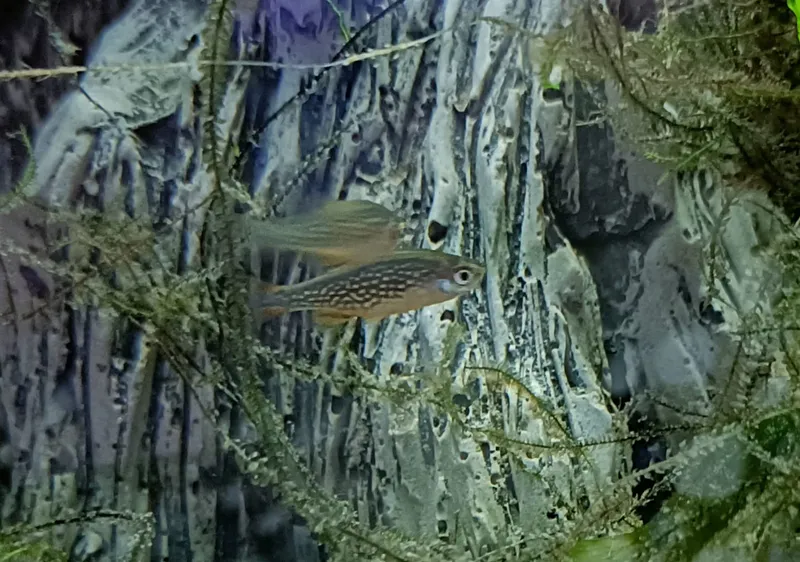Danio margaritatus, commonly known as the Celestial Pearl Danio or Galaxy Rasbora, is a small freshwater fish native to Myanmar. It is a popular species in the aquarium hobby due to its striking colors and peaceful nature.
Basic Info about Danio margaritatus:
- Common Name: Celestial Pearl Danio, Galaxy Rasbora
- Scientific Name: *Danio margaritatus*
- Family: Cyprinidae
- Size: Grows up to 1 inch (2.5 cm)
- Lifespan: 3-5 years with proper care
- Origin: Inhabits small ponds and shallow waters in Myanmar, specifically around the Salween River basin.
- Water Temperature: 72-79°F (22-26°C)
- pH Range: 6.5-7.5 (slightly acidic to neutral)
- Diet: Omnivorous. It can be fed high-quality flakes, small pellets, live or frozen foods like daphnia, brine shrimp, and microworms.
- Behavior: Peaceful and social fish. They are best kept in schools of at least 6-8 to reduce stress and encourage natural behavior.
- Tank Size: A minimum of 10 gallons is recommended for a small school.
Appearance:
The Celestial Pearl Danio is known for its vibrant colors, with a dark blue body covered in small, pearl-like spots (hence the name "margaritatus," meaning "pearl-like"). The fins are often orange or red with black markings, adding to their aesthetic appeal.
Care:
These fish prefer densely planted tanks with plenty of hiding spots and open swimming areas. They thrive in well-maintained aquariums with clean, filtered water and stable water conditions. Because of their small size and peaceful temperament, they do well in community tanks with other small, non-aggressive species.
The Celestial Pearl Danio is a popular choice for nano tanks and aquascaped setups due to its beauty and relatively easy care requirements.
currently 1-2cm
locally bred



